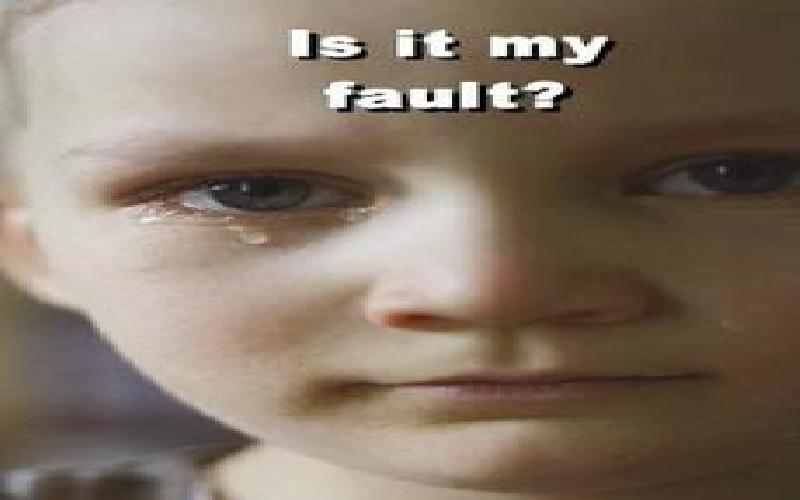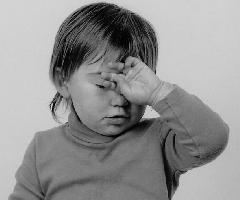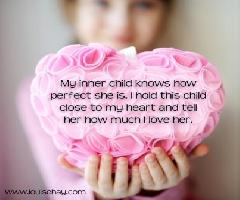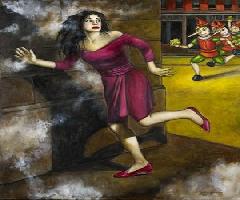Guilt is very uncomfortable feeling and negative emotion that has the potential of robbing its subject of all peace and serenity of mind and make him wretched and unfortunate. It sucks all energy from within mind and body and makes the subject inert or inactive. To make the mind inertia and produce neurasthenic conditions on body is the ultimate goal of guilt. It can be defined as state of mind in which the person feels very uneasy, restless and anguish. In extreme cases it may lead to melancholic depression, despondency and insanity.
What is guilt?
It is state of mind of being remorseful and reproaching itself. The subject repents for having done something wrong or that that he should not had done. We as human beings feel guilty under the following conditions: The first condition is of positivity where we feel we should have done something for someone but we shook our responsibility or obligation and did nothing in deed. It is called duty or Dharma by religion that we failed or did not performed it diligently. Guilt is produced for not performing our duty or dharma. The second condition or situation is of negativity where we feel we should not have done something but we did and now deserve punishment for that. In both the situations and conditions the guilt is related to our frame of mind.
To be or not to be
So guilt is wavering of mind between two extremes of “doing and not doing”; or a severe conflict between “should have or should not”. In the same breath the person says, “should I do it or not. This ambivalent condition of human mind has been beautifully described in Gita where Arjuna, the protagonist is afflicted with the dilemma of fighting his own kinsmen and religious guru’s Drona and Bhisma. In guilt mind is split and it starts judging the validity of its own actions.
Social Judgment
Mind is always in contradiction or antagonism with itself not deciding either way. The ambivalence of mind is at the root of guilt. Guilt stands on right judgment of actions. But who will decide the righteousness and piousness of actions? Righteousness is not absolute it is related to non righteousness. Who will discriminate between good or bad or saintly or evil or dirty? Guilt is related to the normative science of ethics, science of values or morality. What is moral and good in one situation or condition becomes immoral in other situation. There cannot be absolute social standards for good or bad or yardstick of good conduct or bad actions. The learned and wise men of society had devised set of conduct or code of conduct for individuals based on wisdom and religious experience for persons living in society. And to follow these norms and rules is the duty of everyone and is obligatory on every person. The good actions have been designated as Dharma and bad ones have been leveled as Adharm. Dharma is that action or deed that is guided by conscience and Adharma is that, guided by vanity and ego. Every religion and society had its own distinct and peculiar code of religion-ethico conduct. And every member of society is expected to follow and adhere to these rules and norms.
Inborn ideals or sabhbav (disposition)
We have inborn innate ideals, dispositions or inclinations for ideals. We are conditioned to them by birth or we have acquired or learned ideals or behaviors. The acquired ideals have been taught and imposed on us by our parents, teachers and religious institutions. We blindly follow these notions and fixations. We are conditioned to that type of thinking and behavior, imposed on our psyche by our elders. We had rationally adopted them but rather have been thrust or imposed on us in a rigid way. When our innate and inborn temperament (urges and impulses) and acquired temperament or persona; both are in the same frequency or conformity and resonance than there is no conflict or subsequent guilt. But generally, this is not the case. Our innate nature (the aggregate sum of our previous actions or samaskars) and willfully acquired traits fixations and fixed ideas are constantly in direct clash and contradiction with each other for supremacy. Our ego is in constant contradiction with our internal impressions of mind related to previous births. Our internal innate nature says something different from what we say or our ego commands or our inner nature wishes/desires something different that our ego is providing to it, thus clash of interest is produced in mind. This state of clash and contradiction of interest of our id self and ego self results in guilt. Guilt simply means that our mind is tuned to something else while our ego is tuned to something else. So there become two poles or two people in one person or integration of self is destroyed and its degradation starts. The degradation process consumes whole human energy and subject is reduced to wreck.
http://psychology.expertscolumn.com/article/how-guilt-complex-evolved-child-s-innocent-psyche








